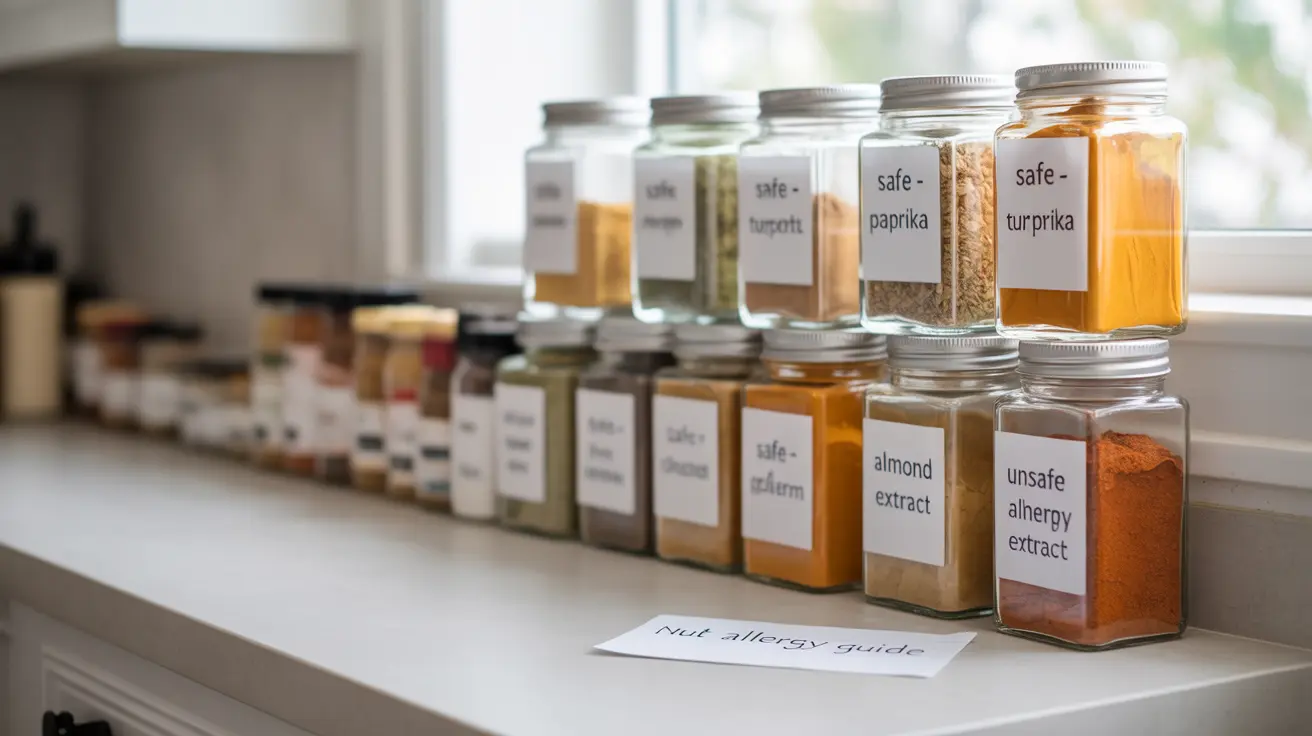Living with a nut allergy requires careful attention to everything you eat, including the spices and seasonings in your food. While many people focus on obvious sources of nuts, understanding which spices are safe to use and which might pose risks is crucial for maintaining a nut-allergy-safe diet.
This comprehensive guide will help you navigate the world of spices safely, identifying potential risks and providing practical solutions for seasoning your food when you have a nut allergy.
Understanding Cross-Contamination Risks in Spices
Cross-contamination in spices can occur during various stages of production, processing, and packaging. Many spice manufacturers process multiple products, including nuts, in the same facilities. This creates potential risks for individuals with nut allergies.
Common High-Risk Spices and Seasonings
Several spices deserve special attention due to their higher risk of cross-contamination with nuts:
- Ground cumin
- Curry powder blends
- Mixed spice blends
- Ground coriander
- Ethnic seasoning mixtures
Single vs. Blended Spices
Single-ingredient spices generally pose less risk than blended varieties. However, it's essential to verify the manufacturing process and facility conditions even for single spices.
Reading Labels and Manufacturing Information
Understanding product labels is crucial for maintaining safety with nut allergies. Look for these key elements on spice packaging:
- Allergen statements
- Manufacturing facility information
- "May contain" warnings
- Cross-contamination alerts
Safe Shopping Strategies
When purchasing spices with a nut allergy, implement these safety measures:
- Choose reputable brands with clear allergen labeling
- Contact manufacturers directly for detailed information
- Consider whole spices over ground versions
- Look for certified allergen-free products
- Purchase from companies specializing in allergy-safe products
Creating a Safe Spice Collection
Building a safe spice collection requires careful planning and selection. Consider these approaches:
- Start with basic, single-ingredient spices
- Research brands thoroughly before purchasing
- Keep documentation of safe products
- Maintain separate spice storage for shared households
Frequently Asked Questions
What spices should people with nut allergies avoid due to cross-contamination risks?
People with nut allergies should be particularly cautious with curry powders, spice blends, ground cumin, and mixed seasonings. These products often come from facilities that also process nuts. Always check labels and contact manufacturers when uncertain.
Can certain spices cause allergic reactions even if they don't contain nuts?
Yes, some spices can cause allergic reactions independent of nut content. Additionally, cross-contamination during manufacturing can introduce nut proteins into spices that don't naturally contain nuts. Always verify manufacturing processes and facilities.
How can I safely use spices if I have a nut allergy or sensitivity?
Choose single-ingredient spices from trusted manufacturers, look for certified allergen-free products, and consider whole spices instead of ground versions. Always read labels carefully and maintain contact with manufacturers about their production processes.
Is cumin safe for individuals with nut or peanut allergies?
Pure cumin is naturally nut-free, but ground cumin can be at risk for cross-contamination depending on the manufacturing facility. Choose cumin from manufacturers that specifically address allergen concerns and maintain dedicated facilities.
What precautions should I take when buying spice blends if I have a nut allergy?
When buying spice blends, carefully read ingredient lists and allergen warnings, contact manufacturers about their production practices, choose products from dedicated allergen-free facilities when possible, and consider creating your own blends using safe single spices.




